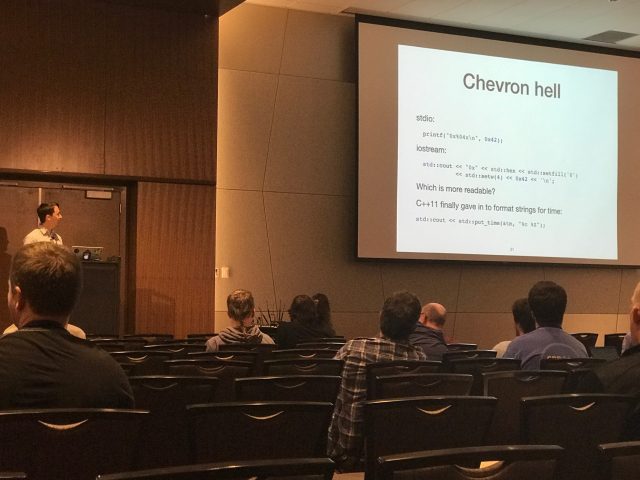CppCon 2017: Learning and Teaching Modern C++--Bjarne Stroustrup
Cppcon 2017 opening keynote by Bjarne Stroustrup is now live.
Learning and Teaching Modern C++
by Bjarne Stroustrup
From the article:
We – attendees at CppCon – are all teachers. Some teach for a living; many occasionally teach a course or give a lecture; essentially all give advice about how to learn C++ or how to use C++. The communities we address are incredibly diverse.
What do we teach, and why? Who do we teach, and how? What is “modern C++”? How do we avoid pushing our own mistakes onto innocent learners?
Teaching C++ implies a view of what C++ is; there is no value-neutral teaching. What teaching tools and support do we need? Consider libraries, compiler support, and tools for learners. This talk asks a lot of questions and offers a few answers. Its aim is to start a discussion, so the Q&A will be relatively long.

 Cppcon continues!
Cppcon continues!